How to Fatten Up a Dog: Tips and Tricks for Healthy Weight Gain
If you have a dog that is underweight, you may be wondering how to help them gain weight and get healthy. There are many reasons why a dog may be underweight, from medical issues to picky eating habits. Whatever the cause, it’s important to address the issue and help your dog get back to a healthy weight.
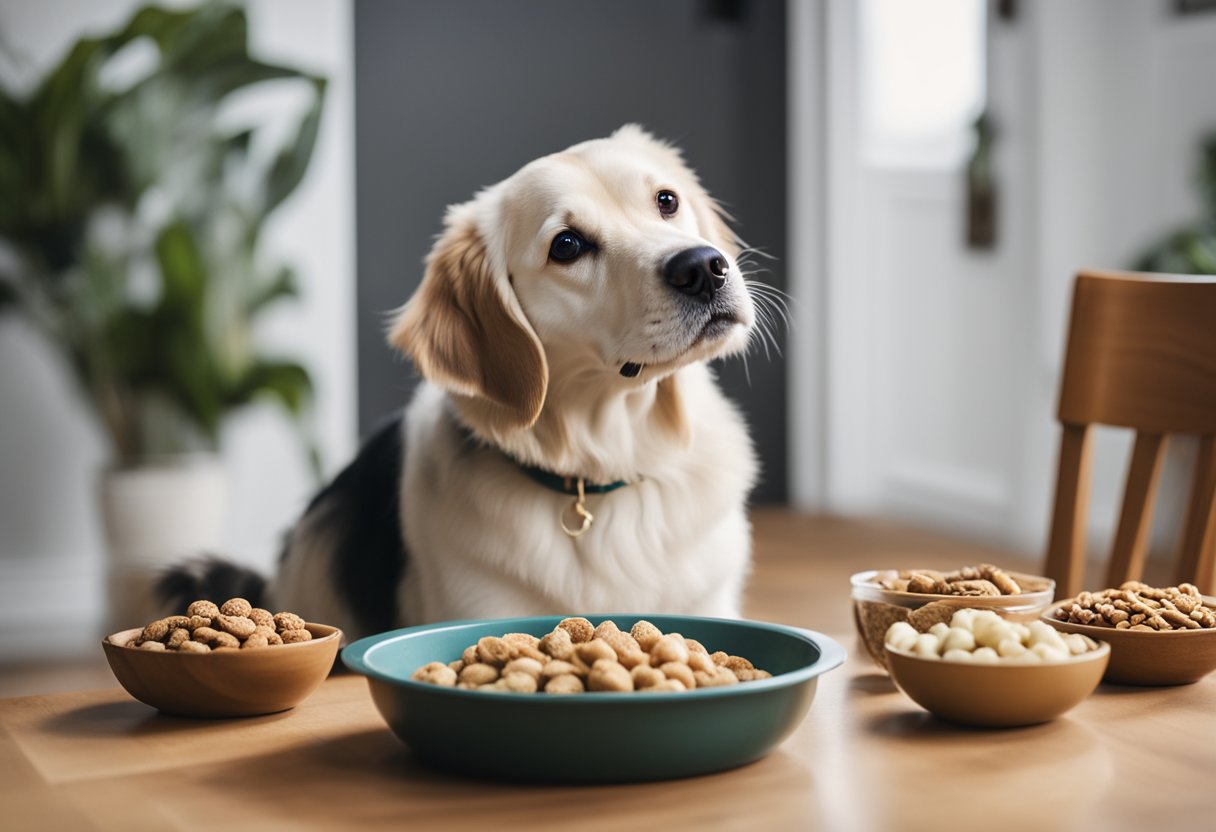
Assessing Your Dog’s Health is the first step in helping your dog gain weight. You should take your dog to the vet to rule out any underlying medical issues that may be causing their weight loss. Once your vet has given your dog a clean bill of health, you can start looking at diet and feeding strategies to help your dog gain weight.
Diet and Feeding Strategies are essential for helping your dog gain weight. You may need to switch to a higher calorie dog food or add supplements to your dog’s diet to help them gain weight. It’s important to make sure your dog is getting enough protein and healthy fats to support muscle growth and overall health. With the right diet and feeding strategies, you can help your dog gain weight and get back to a healthy state.
Key Takeaways
- Assess your dog’s health before making any changes to their diet.
- Switch to a higher calorie dog food or add supplements to your dog’s diet to help them gain weight.
- Make sure your dog is getting enough protein and healthy fats to support muscle growth and overall health.
Assessing Your Dog’s Health
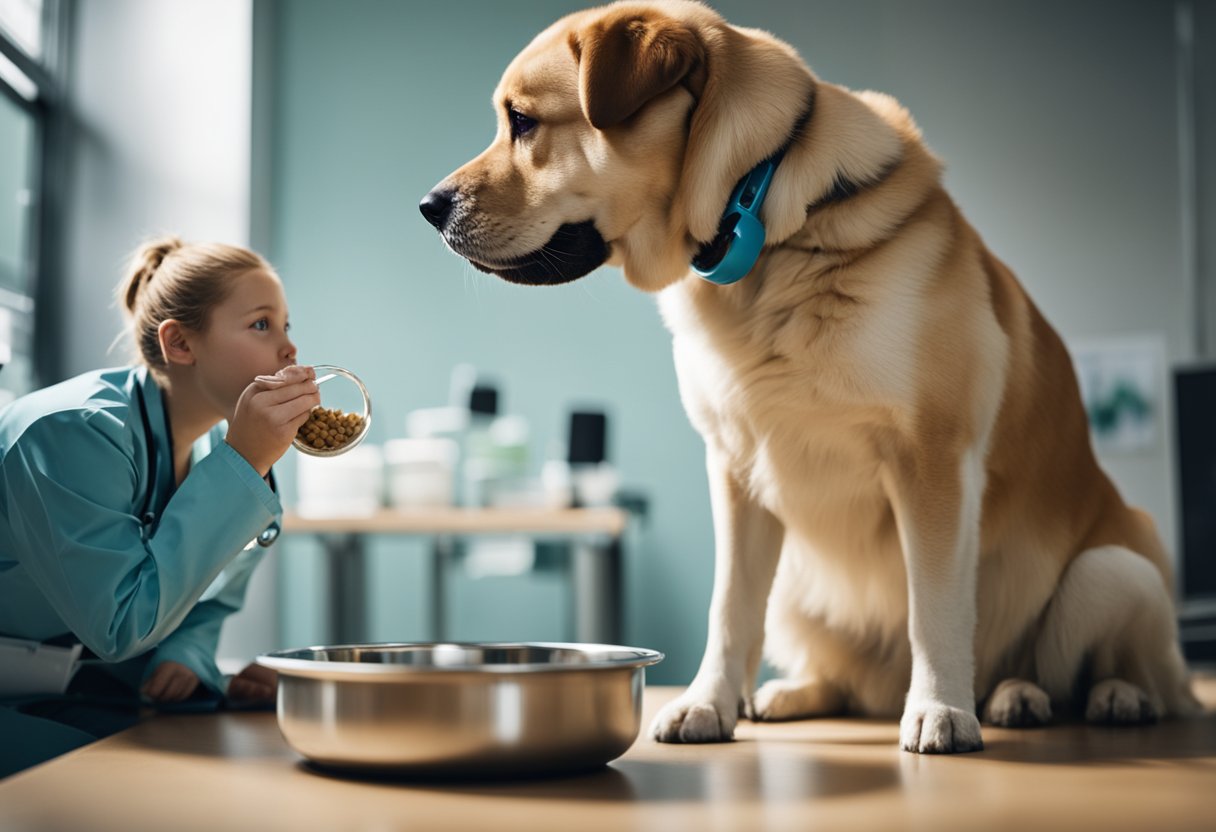
Before making any changes to your dog’s diet, it is important to assess your dog’s overall health. This will help you determine if your dog’s weight loss is due to an underlying health condition or if it is simply a matter of not consuming enough calories.
Consult with a Veterinarian
If your dog has experienced a significant weight loss or if you are concerned about their overall health, it is important to consult with a veterinarian. They will be able to perform a physical examination and run any necessary tests to determine if there are any underlying health conditions that may be causing your dog to lose weight.
Your veterinarian may also be able to provide you with recommendations for how to safely and effectively help your dog gain weight. They may suggest a specific diet or feeding schedule, or they may recommend supplements or other treatments to help support your dog’s weight gain.
Understanding Canine Nutritional Needs
In addition to consulting with a veterinarian, it is important to have a basic understanding of your dog’s nutritional needs. Dogs require a balanced diet that includes protein, fat, carbohydrates, vitamins, and minerals to maintain optimal health.
When assessing your dog’s diet, make sure they are receiving enough of each of these nutrients. You may need to adjust their diet or feeding schedule to ensure they are consuming enough calories to support weight gain.
It is also important to avoid overfeeding your dog, as this can lead to other health problems. Stick to the recommended serving sizes for your dog’s size and activity level, and avoid giving them too many treats or table scraps.
By consulting with a veterinarian and understanding your dog’s nutritional needs, you can help ensure that your dog gains weight safely and effectively.
Diet and Feeding Strategies
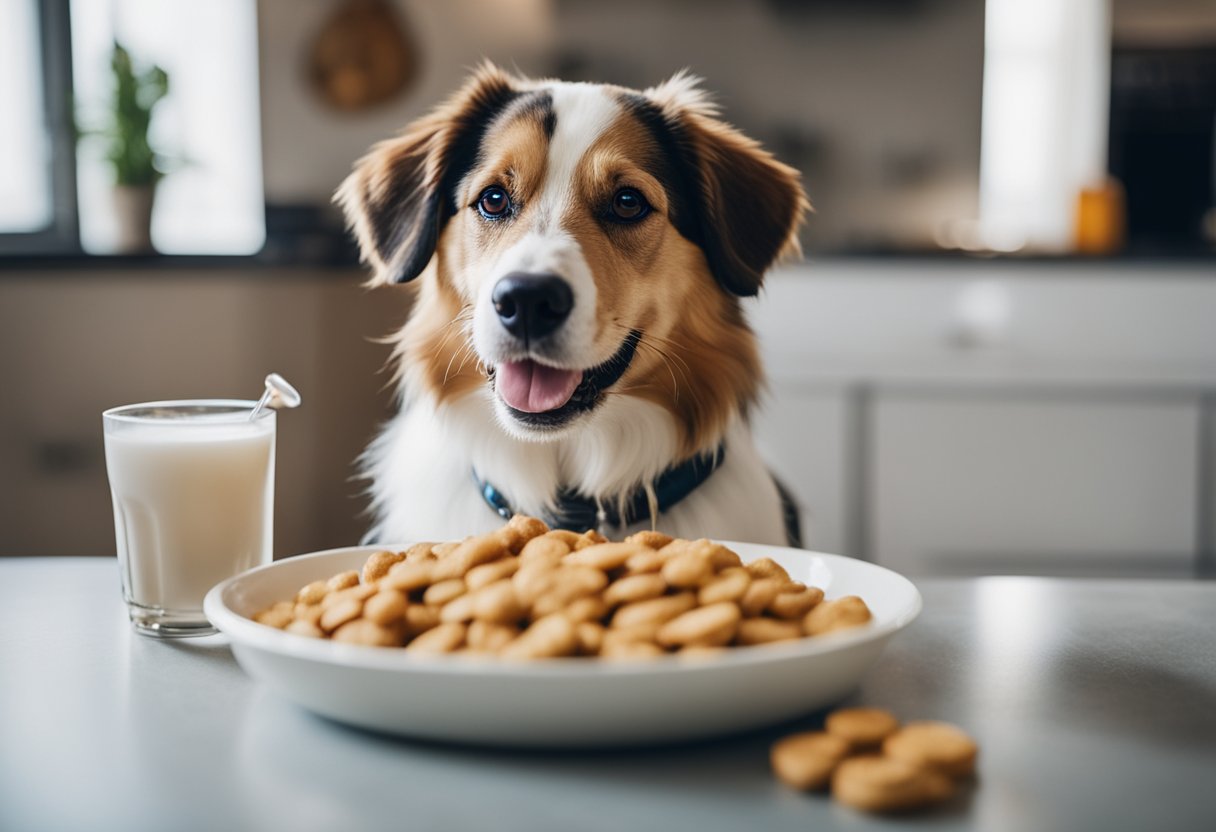
When it comes to fattening up a dog, diet and feeding strategies play a crucial role. Here are some tips to help you ensure that your dog is getting the right type and amount of food to put on some healthy weight.
Choosing the Right Food
The first step in fattening up your dog is to choose the right type of food. Look for high-quality dog food that is rich in protein and healthy fats. Avoid foods that contain fillers, such as corn or wheat, as they provide little nutritional value. You can also consider homemade diets that include lean meats, such as chicken, turkey, and beef, along with vegetables and grains.
Feeding Schedule and Portions
Dogs that need to gain weight should be fed more frequently and in smaller portions. Instead of feeding your dog one or two large meals a day, divide their daily food intake into several smaller meals. This will help increase their appetite and prevent them from feeling too full. You can also try feeding your dog wet food mixed with dry kibble to make their meals more appealing.
Supplements and High-Calorie Additives
Supplements and high-calorie additives can also help your dog gain weight. Consider adding supplements such as omega-3 fatty acids, which can help improve your dog’s coat and skin health, or probiotics, which can aid in digestion. High-calorie additives such as canned pumpkin or sweet potato can also be added to your dog’s food to increase their calorie intake.
By following these diet and feeding strategies, you can help your dog put on some healthy weight and improve their overall health and well-being.
Resources
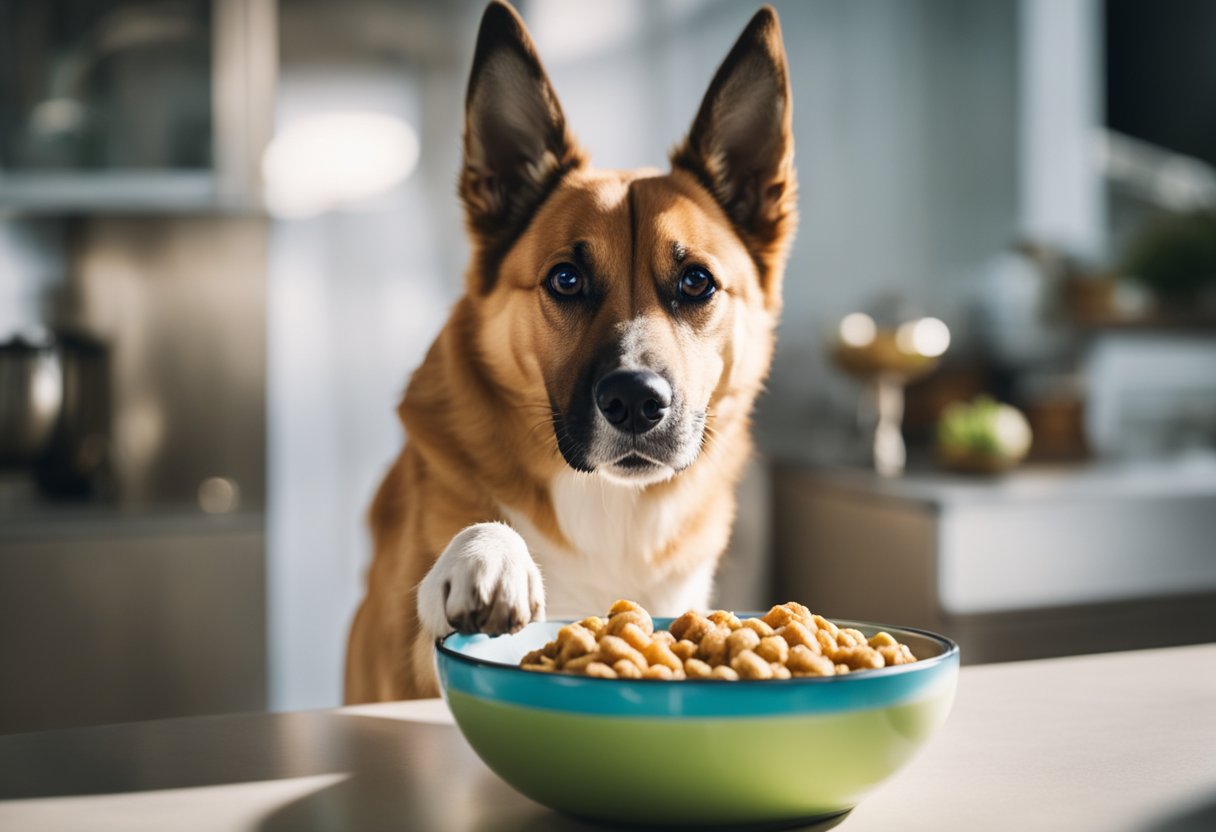
When it comes to feeding your dog, it’s important to make sure they are getting the right nutrients to maintain a healthy weight. If you’re looking to fatten up your dog, there are several resources available to help guide you in the process.
1. Your Veterinarian
Your veterinarian is the best resource for determining if your dog needs to gain weight and for creating a plan to help them do so. They can perform a physical exam, run tests, and provide recommendations for a healthy diet and exercise plan to help your dog gain weight safely.
2. Online Resources
There are many online resources available to help you fatten up your dog. Websites such as K9 of Mine and Dogster provide tips and advice on how to help your dog gain weight in a healthy way. However, it’s important to make sure the information is accurate and reliable before following any advice.
3. Pet Stores
Pet stores often have a variety of high-calorie dog food options that can help your dog gain weight. Look for foods that are high in protein and fat, but make sure to read the ingredients list and nutritional information to ensure you’re feeding your dog a healthy diet.
4. Dog Nutritionists
If you’re having trouble getting your dog to gain weight, consider consulting with a dog nutritionist. They can create a customized diet plan for your dog based on their specific needs and help you determine the best way to fatten them up safely.
Remember, it’s important to consult with your veterinarian before making any changes to your dog’s diet or exercise routine. With the right resources and guidance, you can help your dog gain weight in a healthy way.
Conclusion
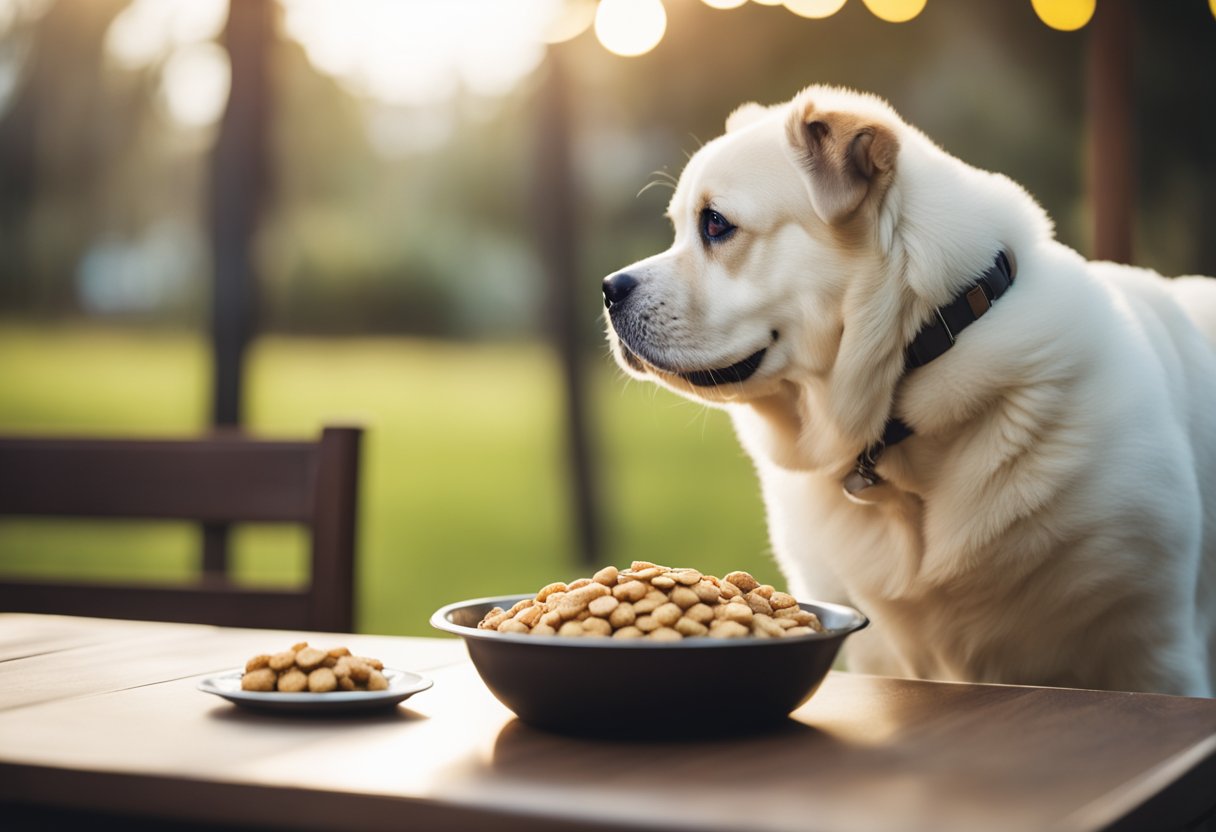
In conclusion, there are several ways to help your dog gain weight safely and healthily. It is important to first consult with a veterinarian to rule out any underlying medical conditions that may be causing weight loss. Once you have identified the cause of weight loss, you can take steps to address it.
Feeding your dog a high-quality, nutrient-dense diet is key to helping them gain weight. You may want to consider adding supplements such as omega-3 fatty acids or probiotics to their diet to help improve their overall health and digestion.
In addition to diet, exercise is also important for your dog’s overall health and well-being. Regular walks or playtime can help encourage appetite and muscle gain, which can help your dog put on weight in a healthy way.
Finally, be patient and consistent with your efforts to help your dog gain weight. It may take some time to see results, but with the right approach, you can help your dog achieve a healthy weight and enjoy a happy, active life.
Frequently Asked Questions
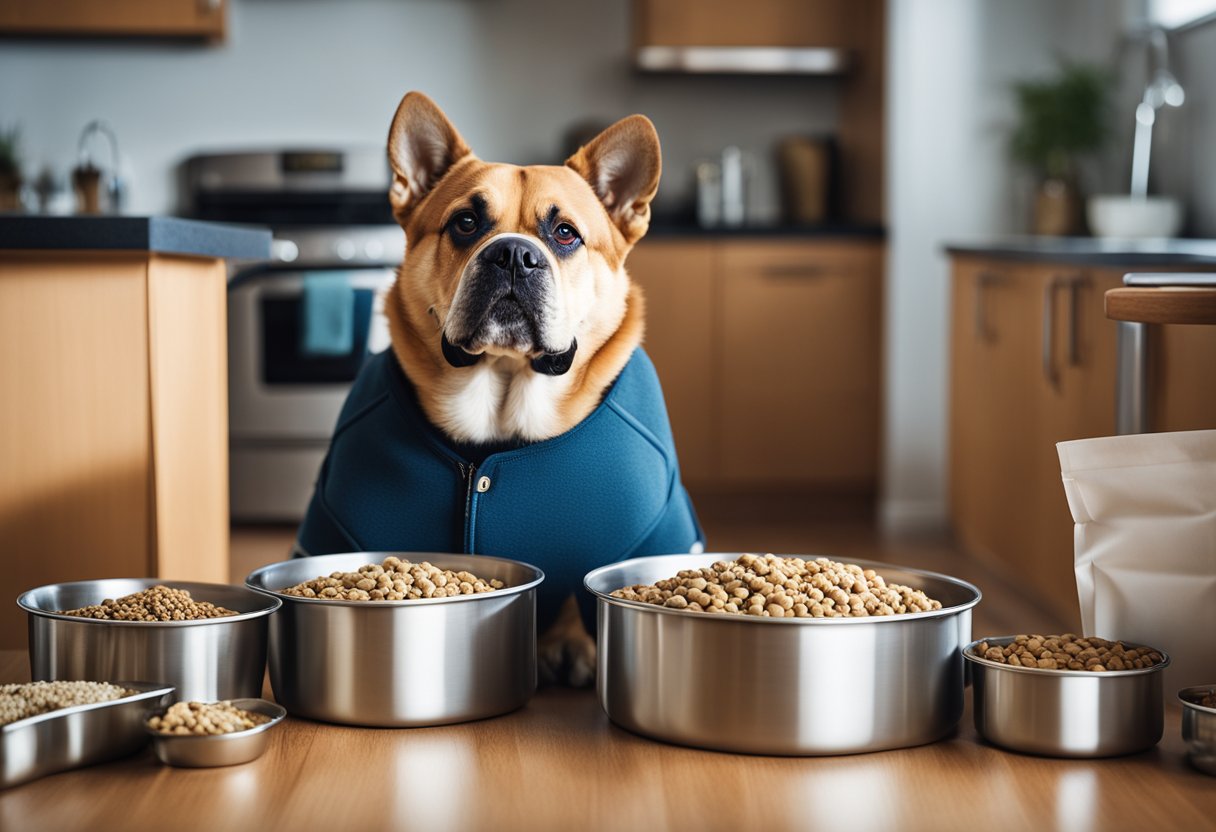
What are healthy human foods that can help increase a dog’s weight?
While it’s important to be cautious when feeding your dog human food, there are some healthy options that can help increase their weight. Some examples include cooked chicken, eggs, and sweet potatoes. However, it’s important to avoid foods that are toxic to dogs, such as chocolate, grapes, and onions.
What are natural methods for helping a dog gain weight?
Natural methods for helping a dog gain weight include increasing their exercise, feeding them smaller meals more frequently throughout the day, and adding healthy fats to their diet. You can also try adding supplements to their food, such as omega-3 fatty acids and probiotics.
What is the fastest way to help a dog gain weight safely?
The fastest way to help a dog gain weight safely is to feed them a high-quality, calorie-dense dog food that is specifically designed for weight gain. You can also add healthy fats to their diet, such as coconut oil or olive oil. However, it’s important to consult with your veterinarian before making any significant changes to your dog’s diet.
Can you suggest some homemade recipes that are good for weight gain in dogs?
Some homemade recipes that are good for weight gain in dogs include boiled chicken and rice, scrambled eggs, and ground beef with sweet potatoes. However, it’s important to consult with your veterinarian before making any significant changes to your dog’s diet.
How can I help my dog gain weight if they have a sensitive stomach?
If your dog has a sensitive stomach, it’s important to introduce new foods slowly and in small amounts. You can also try feeding them a limited-ingredient dog food that is specifically designed for sensitive stomachs. Additionally, you can try adding probiotics to their diet to help improve their digestion.
What are the best practices for feeding a dog after pregnancy to increase their weight?
After pregnancy, it’s important to gradually increase your dog’s food intake over the course of several weeks. You can also try feeding them a high-quality, calorie-dense dog food that is specifically designed for weight gain. Additionally, it’s important to make sure your dog gets plenty of exercise to help them build muscle and maintain a healthy weight.
